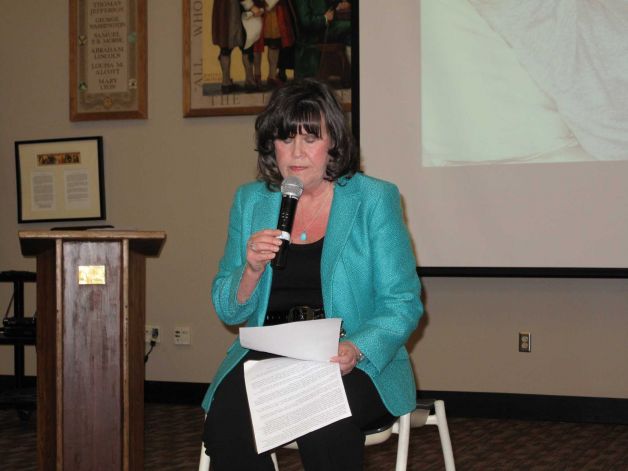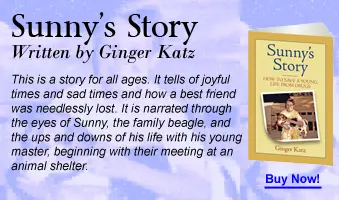![]()
Teen drug use the focus of speaking event at New Canaan High
By Tyler Woods
Published Monday, February 18, 2013

Ginger Katz, founder of The Courage to Speak Foundation, shared the story of her son’s drug use with
parents gathered at New Canaan High School on Feb. 6, 2013. Katz warned parents that low-level
teen drug use could develop into addiction and dangerous consequences. Photo: Tyler Woods
Her son died after snorting heroin in the basement of her house nearly 17 years ago, and Ginger Katz has been sharing her story with children, teens and parents ever since.
Katz, the founder of the Courage to Speak Foundation, a Norwalk-based 501(c)(3), spoke to the public at New Canaan High School on Wednesday, Feb. 6.
Earlier in the week she had made the presentation to ninth- and 10th-graders in one session and 11th- and 12th-graders in another. The foundation works to engage home, school and community in a public health endeavor to keep children safe from drugs.
“It was the night before the funeral and I couldn’t sleep,” she began the presentation, explaining her drive to speak out on the issue of teen drug use. “We were telling everyone that we wanted to wait for the toxicology report, but we knew. The doctors wanted us to say he died of aneurysm but we wouldn’t do this. I had a vision, and I visualized speaking out. I said, `If this is happening in our family, it must be happening to others but no one’s talking about it.'”
As she has more than 1,000 times regionally and nationally before, Katz went on to tell the story of her son, Ian Eaccarino. She said the first time she ran into trouble with him was when she found he’d been smoking cigarettes in eighth grade. During high school, he was withdrawn and sullen, which she said she attributed to adolescence, but in fact he had started smoking marijuana and drinking. At one point, she forced him to take a drug test, the decision a result of irregular behavior and her own suspicions. He first tried to switch the urine, then failed. Looking for ways to straighten him out, Katz and her husband sent him to counseling. As Ian continued to play lacrosse and baseball and looked toward college, Katz later found out that he was also taking more — and more dangerous — drugs. She believes his drug use in the beginning part of high school was a critical time in his addiction.
“This is an adolescent disease,” she told the audience. “The majority of people who become addicted start as an adolescent. If we can get our kids to 21 without using drugs, they have a much better chance.”
By sophomore year of college, Ian was snorting heroin. Katz said he had graduated from using it on weekends to five times per day in only a few months. He was dead only months later.
Although Katz did not blame anyone for his descent into drugs, she drove home the point that people must have the courage to speak about addiction, regardless of the stigma surrounding the disease. Details about his life that only came out after his death, including the fact that he was molested by a baby sitter when he was 10 or 11 or that he did PCP in high school, would have made a difference in the way Katz and the family might have dealt with the situation.
Katz, who founded Courage to Speak in 1996, was invited to attend the Community Anti-Drug Coalitions of America’s 23rd annual National Leadership Forum, which took place in Washington, D.C., Feb. 4 through 7, where she joined more than 2,000 substance-abuse prevention specialists and advocates from throughout the country.
Her presentation at New Canaan High School seemed to be well received by the parents in attendance.
“(She was) good at articulating her experience and sharing it; she didn’t spare anything,” said Ron Zimmerman, a father of four. “He looks like a very successful child, a straight-laced kid, and you can be completely mistaken. It makes you realize you have to ask questions. No one is immune, even a child you may think is healthy and fine could be vulnerable.”
Katz made the point that it can be difficult for parents to approach the issue of drug use with their teenage children. New Canaanite Stephanie Goldpin explained how she makes sure her children do not use drugs.
“My older children, we ask them directly and confront them and go through belongings and make sure we believe what they said. My younger son, I just let him know that I attend these kinds of meetings,” she said.
Another parent, Kelly Harshbarger, echoed the suggestion from Katz not to enable teens by allowing them to avoid punishment.
“We feel like if they were doing something they weren’t supposed to, we gave them clear rules in our home and clear consequences,” Harshbarger said of her children. “If we felt like they were doing things, we hit them where it hurts: cell phones and car. And you’ve got to follow through.”
Katz ended the program by connecting with the adults on the fact that there’s no rule book on how to parent, that you can only do the best you can.
“Keep the conversation going, and your influence is very strong,” she said. “Our kids are good kids they just have to make healthy decisions for themselves.”






